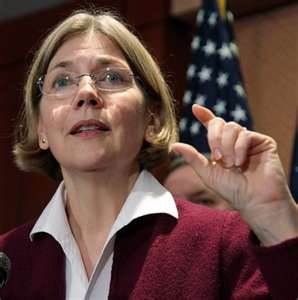Nothing smacks of self-interest better than a rich person trying to defend their wealth.
Self-interest is as old as human and animal DNA, so it is no surprise that it’s still a paramount concern today.
It also is no surprise that self-interest among the very rich plays a role in the upcoming election that pits the failures of unregulated capitalism against plans for rectifying the historic economic inequality that now exists in the U.S.
So, it was against this backdrop that hedge fund billionaire Paul Tudor Jones said at the Greenwich Economic Forum in Greenwich, Connecticut, that the upcoming election between Trump, considered the most corrupt

president in modern American history, and Elizabeth Warren, an advocate of regulated capitalism, would cause the S&P 500 Index to fall 25% if Warren was elected and rise 15% if Trump was elected. Jones’ poll was conducted among his well-compensated hedge fund employees.
It is also a mistake to equate any rise in the stock market with the general financial well-being of the average American. Most people don’t benefit from the market, except as it is reflected in their 401(k)s. And these retirement savings plans are generally falling short of being able to provide a high degree of financial security in retirement. Still, hedge fund managers and the financial media continue to equate the two as being synonymous with wealth and wealth creation. They are not.
The other odd thing about this article published on CNBC was that it never mentioned that both Warren and Trump said they would revoke the hedge fund preferential tax break called carried interest that these leveraged, specialized, and secretive investment funds now receive.
Carried interest is an accounting provision that allows any profits earned by the general partner of a private investment fund to be treated as a long-term capital gain. These gains are taxed at a lower rate than ordinary income.
Trump said numerous times during his campaign that he would revoke the hedge fund exemption, but like most of his failed populist campaign pledges to “drain the swamp,” he has done nothing to repeal or curtail the carried interest loophole that also benefits real estate investors.
Warren, however, has also repeatedly said she would revoke the carried interest loophole, but her record is exactly opposite that of Trump. Warren was a creator, defender, and proponent of the Consumer Financial Protection Bureau (CFPB), created in 2011 by the Obama administration as part of the Dodd-Frank Wall Street Reform and Consumer Protection Act,
Since 2011, the CFPB has been continually attacked by the Trump administration, Wall Street banking, credit card, financial services, and insurance lobbyists. Trump’s people even moved to defund the agency in a further attempt to make it cease operations. Despite these attempts to sabotage it, the CFPB recovered about $13 billion and helped about 35 million consumers, according to the agency’s web site. To do this, the CFPB has taken on the student-loan debt-relief programs, credit agency, lending, insurance, and banking industry abuses of unsuspecting individual consumers.
“…it is a major journalistic failure that CNBC never mentions the carried interest provision.”
So, it is a major journalistic failure that CNBC never mentions the carried interest provision and its very focused benefits to the hedge fund managers in this November 5 article. How could the editors omit this crucial provision that explains their self-interest? Were they unaware of carried interest? Too busy? Or, don’t they know how the hedge fund industry works?
The Power of a Loophole
Jones’ also fails to address the carried interest beneficial tax gimmick and for good reason. Informal surveys I have conducted found that a large percentage, ranging from 25% to 50% of hedge funds, would cease operations within a few years if this loophole was closed. These closures would especially hit the smaller hedge funds whose returns above the benchmark are very small and which keep the lights on by charging management fees.
While the carried interest loophole is protected by lobbyists and the shadow Wall Street government, Jones should be credited for supporting a Democrat and in his private life he has supported charitable causes (the Robin Hood Foundation) and environmental protections in the Chesapeake Bay.
Jones also has endorsed Democrat Pete Buttigieg and said the S&P 500 Index would hover at around 2700 if Joe Biden or Buttigieg were elected. Jones never mentioned Bernie Sanders, but that election would probably be catastrophic for the top 1%.
Jones endorsed Buttigieg, a former McKinsey consultant, among other things, who is an educated technocrat with a mixed record of advancing civic, racial and community police programs in South Bend, Indiana where he served as major. Buttigieg is a timid, moderate Democrat who believes in the middle-approach, and this probably includes keeping the carried interest loophole fully operational. This is a major reason Jones endorsed him, although it was not part of the Greenwich presentation as shown on the CNBC web site.
Or, better yet, maybe carried interest never had to be raised as all since self-preservation is a paramount issue in politics, as well as life.











